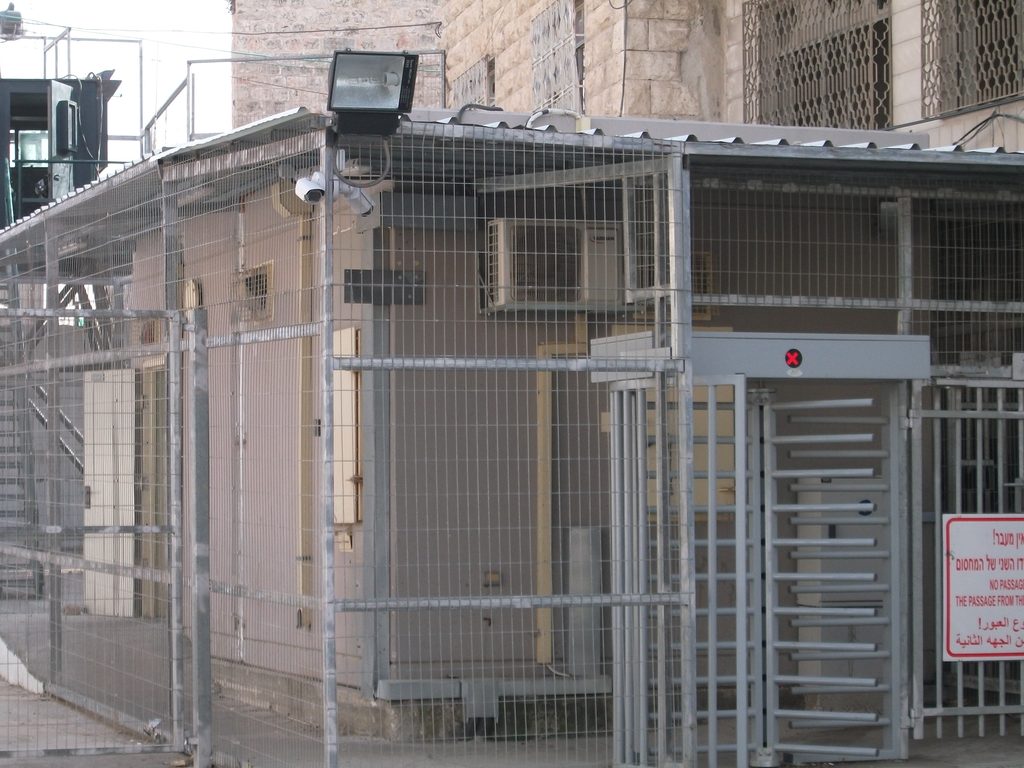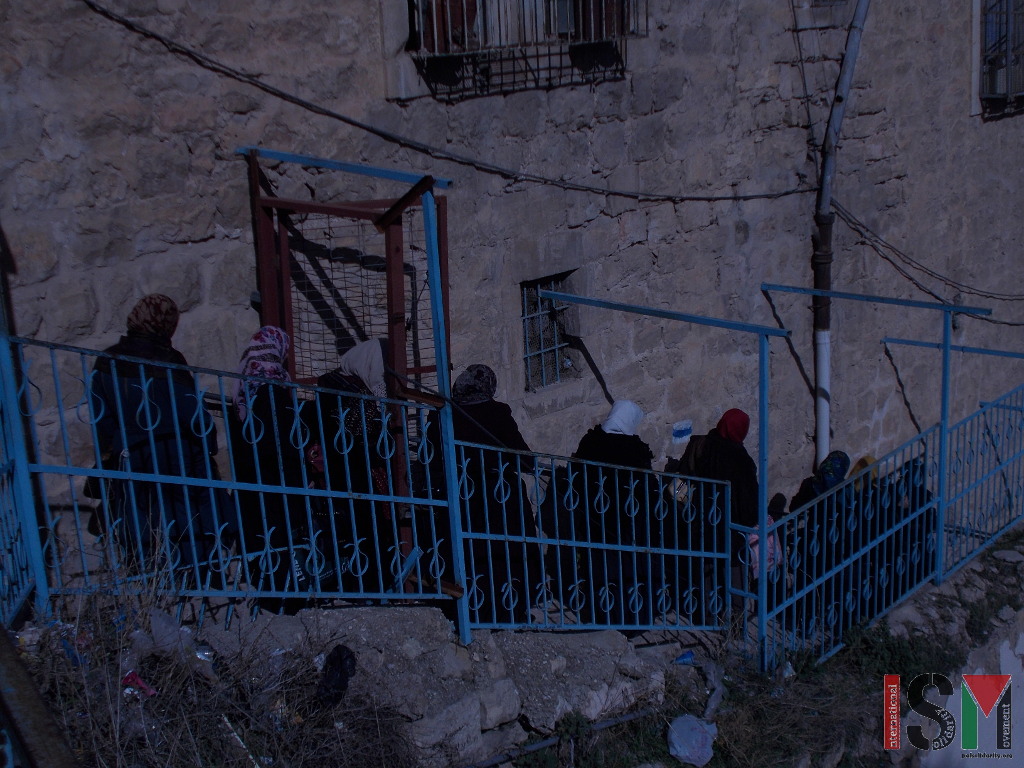Category: Hebron
-

Staring down the barrel of a gun
14th January 2017 | International Solidarity Movement, al-Khalil team | Hebron, occupied Palestine According to the theory of realism within the field of international relations, conflict and war is the outcome of an actual threat (a material/military threat). That is, war breaks out when one country is threatening the security of some other country by…
-

Sleeping on duty – occupation soldiers in Hebron
12th January 2017 | International Solidarity Movement, al-Khalil team | Hebron, occupied Palestine On January 12th, 2017, Shuhada checkpoint in occupied al-Khalil (Hebron) stayed closed for over half an hour, while–as it appears–soldiers were sleeping. In the meantime, long queues of Palestinians trying to reach their homes formed outside the closed checkpoint. The Shuhada checkpoint…
-

Female teachers protests the arbitrary instructions that further restrict access to the school compound in Hebron H2
9th Januari 2017 | International Solidarity Movement, al-Khalil team | Hebron, occupied Palestine At Sunday December 8 at noon, when fourteen female teachers of the Qurtuba high-school were leaving the school compound on their way home, the Israeli forces at checkpoint 55 on the Shuhada street blocked their way and kept them waiting on the…
